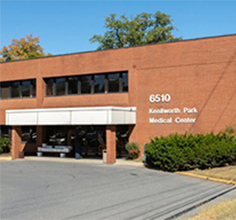.jpg)
You don’t need to feel sick to make a doctor’s appointment. In fact, the smartest time to go might be when you’re feeling just fine. Annual physicals are one of the most effective tools for staying healthy and catching serious issues as early as possible. Southern Maryland Medical Group is here to help. Yearly visits can tell your primary care doctor a lot about how your body is functioning right now and what might need closer attention in the near future. If you're managing a chronic condition or trying to stay ahead of future health risks, your yearly physical is the best way to get an honest, clear look at how your systems are really doing. Read more to find out how these check-ups support long-term health and why skipping them can cost you more than your copay.
A lot can change in twelve months. Your blood pressure could creep up, cholesterol levels might rise, and you might be walking around with early signs of heart or lung issues without knowing. Annual physicals catch those slow shifts. At your appointment, the doctor will start with a conversation about any changes in your health, energy, sleep, or stress. Then they’ll move into your vital signs. Blood pressure, heart rate, respiratory rate, and temperature are recorded because they give a baseline view of how your heart and lungs are operating day-to-day. From there, they might listen to your heart and lungs with a stethoscope to check for irregular heart rhythms, murmurs, or signs of fluid in the lungs. The exam may also include a basic physical check for things like swelling in the ankles, shortness of breath, or persistent coughing. It’s easy to underestimate routine steps like these, but they’re how problems like high blood pressure, arrhythmias, and early-stage heart or lung disease first show up. When you catch them early, treatment can be far more effective and less invasive.
When people hear about bloodwork, they usually think of cholesterol levels. While that’s part of it, there’s a lot more that your blood can tell your doctor. Comprehensive metabolic panels measure kidney and liver function, electrolyte balance, and blood sugar levels. All of these can have direct or indirect effects on your cardiovascular and pulmonary health. Uncontrolled diabetes damages blood vessels and increases the workload on the heart. A spike in creatinine could point to kidney strain, which can overlap with heart issues. Low red blood cell counts might signal anemia, which can leave you short of breath and exhausted. A heart doctor may use these numbers to decide whether further tests are needed, like an EKG or stress test. Abnormal white blood cell counts could indicate chronic inflammation or infection, while oxygen saturation levels can suggest how well your lungs are supplying the rest of your body. The annual exam gives your primary care doctor in Greenbelt, MD a yearly snapshot of your internal systems, and it builds a record they can compare against in the future. Trends are easier to spot when there’s a regular rhythm to your care.
Your mental health and stress levels are part of the picture, too. Chronic stress can increase your risk of high blood pressure or cardiovascular disease. Anxiety and depression have been shown to correlate with worse outcomes in heart patients. Sleep apnea can go undiagnosed, and strain your heart and reduce oxygen levels at night. When doctors ask about your mental health, it’s an attempt to understand how your whole body is working as a system. Disrupted sleep, mood swings, or chronic fatigue can be caused by physical imbalances or underlying conditions that need to be addressed. An annual physical might be the only time you talk to a medical professional about your mental well-being.
It’s tempting to skip your yearly physical if you feel fine, but without annual check-ups, high blood pressure can go undetected until it causes a major problem. Lung disease might not be noticed until it gets severe enough to limit daily life. Heart conditions can remain hidden until a sudden event brings them to the surface. Many serious health issues develop quietly and start with minor symptoms. Waiting until symptoms get worse can put your health at risk, and it can mean more expensive treatments, more time away from work, and fewer options when it comes to managing the issue. Annual physicals give you the power to act early, adjust your lifestyle, and stay in charge of your long-term health.
If you're overdue for a check-up, now is the time to book it. Our experienced team of primary care doctors works hand-in-hand with trusted specialists, including your heart doctor when needed, to make sure you get comprehensive, coordinated care. Call Southern Maryland Medical Group today to schedule your annual physical and get a clear picture of your health before anything catches you off guard.
Southern Maryland Medical Group has 3 convenient locations to provide professional medical care services in the Southern Maryland area. Call or schedule an appointment with one of our locations to get medical care help.

5801 Allentown Road, Suite 400 Camp Spring, MD 20746
Phone: 301-868- 0150
Billing Inquiries: 301-552-1270
Fax: 301-868-0243

7500 Greenway Center, Dr #1200 Greenbelt, MD 20770
Phone: 301-486-7580
Billing Inquiries: 301-552-1270
Fax: 301-486-7581

6510 Kenilworth Ave, Ste 1400, Riverdale MD 20737
Phone: 301-618-0771
Billing Inquiries: 301-552-1270
Fax: 301-618-0772